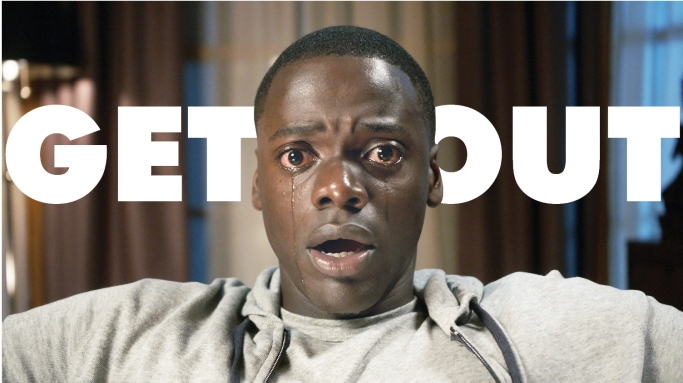
Possible spoiler for Get Out below.
I’m currently a few months away from turning 53 years of age. I’ve been watching horror films as long as I can remember. As you can imagine, for many years I had no idea that horror had any sort of stigma attached to it. I loved the genre, so, of course everyone else did as well, right? This impression lasted until I was at least 20 years old. This is when, after seeing Richard Liberty’s performance in George A. Romero’s Day of the Dead, I was convinced he would be nominated for best supporting actor at the Oscars. I know, foolish, right? Not only was the film horror, but it was also an independently released film. Hollywood never liked those kind of films. That’s why they did their best to kill those kind of releases. Sadly, they were a successful in that endeavor.
Of course, it was easy for me to think that horror had respect due to the boom in its popularity during the early 1980s. Packed houses for films like Creepshow, Reanimator, and the latest Friday the 13th film; unrated gorefests from Italy, as well as domestic releases, expanding to more “respectable” theaters than the local trashy movie house that was walking distance from my home. A young person who grew up with an unquestionable love for the genre could be easily fooled.
Of course, being a long time fan of Siskel & Ebert (their first review that I caught was for the 1979 mutant bear epic Prophecy) I learned early on not to go to them for views on horror. Still, they did like their fare share of scary flick, so I really can’t count them as pure horror haters.
The fact that there was a section of the public that had a pathological hatred for this beloved genre really hit home in the late 1980s. I was watching some news show, if memory serves. A man was being interview that started calling horror porn. I don’t really have much of a problem with pornography, but this was clearly meant to be as derogatory in its meaning. Up to this point, this would prove to be the worse attack on horror I’d ever witnessed. I have since become very defensive of the genre especially in a time when the horror hating term, torture porn, has been inexplicably embraced by The Horror Community.
But, we also live in a time when an blatantly obvious horror film, Get Out, received multiple Academy Award nominations, including Best Picture. Of course, there’s a large portion of the public that make their way to the theater to see buzz worthy films. Months before the nominations rolled in for the film, Get Out became one of these movies. And I’m sure that a large majority of these trend chasers are horror haters. I had no contact with their views on the film until the Oscar nominations were announced.
And it went like this:
One left leaning page on Facebook posted about the nominations for Get Out. The responses made it clear that many, if not all followers of this page, were in denial that the film was in fact horror. Because of it being trendy and Oscar worthy, suddenly Get Out isn’t a horror film.
Those who look down on horror don’t like to admit they actually lowered themselves by liking a horror film. So they have to call it something else, like a thriller. I hate to openly state a spoiler, but at the heart of this film, it’s a mad scientist flick. The 1920 film The Cabinet of Dr. Caligari could be the first of these types of films (unless you count Edison’s silent short of Frankenstein). H. P. Lovecraft came out with Herbert West–Reanimator the next year in a series of short stories. But it was Universal Picture that popularized the trope. Get Out is just adding to this long line of mad scientist stories, only with a social satire subtext.
Of course, this social satire subtext is taking direct aim at many of those same left leaning people who deny that Get Out is a horror film.
We all should remember this quote from the film: “Black is in fashion.”–Charles T. Cochran